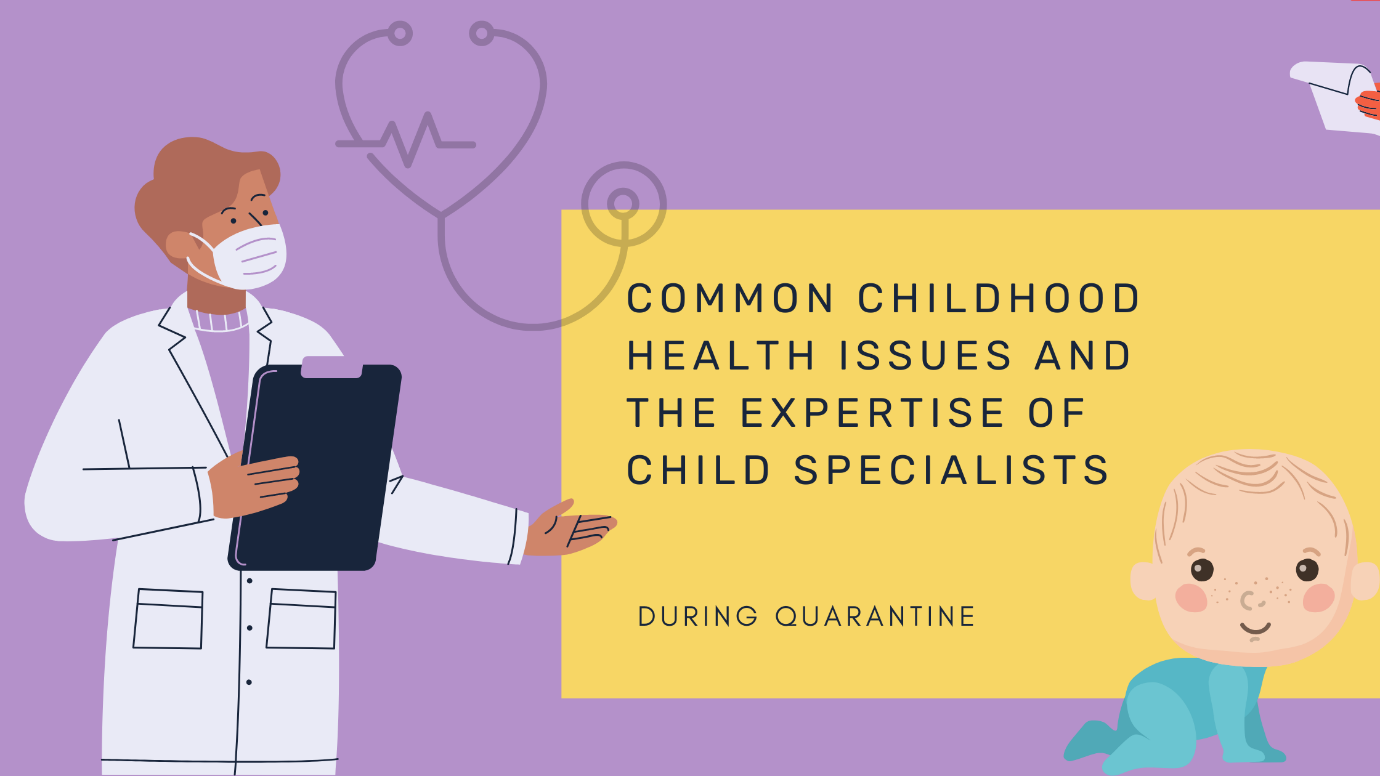Common Childhood Health Issues and the Expertise of Child Specialists
Childhood is a critical phase of life when children experience rapid growth and development. However, it is not uncommon for children to face various health issues during this period. Understanding and addressing these common childhood health issues is crucial to ensure the well-being of children. In this article, we will explore some of the most prevalent health problems faced by children and the expertise of child specialists in managing these conditions.
- Understanding Common Childhood Health Issues
2.1 Allergies
Allergies are a common health concern among children. They can manifest in various forms, such as food allergies, seasonal allergies, or allergic reactions to certain substances. Child specialists play a vital role in diagnosing allergies, conducting allergy tests, and providing appropriate treatment options to alleviate symptoms and prevent future allergic reactions.
2.2 Respiratory Infections
Respiratory infections, including common cold, flu, bronchitis, and pneumonia, are frequent occurrences during childhood. These infections can cause discomfort, breathing difficulties, and other complications. Child specialists, particularly pediatricians, are trained to identify and manage respiratory infections in children, ensuring prompt diagnosis, treatment, and supportive care.
2.3 Digestive Disorders
Children often experience digestive disorders like gastroesophageal reflux disease (GERD), constipation, or food intolerances. These conditions can disrupt a child’s daily life and impact their overall well-being. Pediatric gastroenterologists specialize in diagnosing and treating digestive disorders in children, providing dietary recommendations and medications to manage symptoms effectively.
2.4 Skin Conditions
Skin conditions such as eczema, rashes, or acne are common among children. Pediatric dermatologists possess expertise in diagnosing and treating these dermatological issues specific to children. They prescribe suitable medications, recommend skincare routines, and provide guidance to parents on managing and preventing further skin problems.
2.5 Developmental Delays
Developmental delays refer to when children do not reach milestones at the expected time. These delays can affect speech, motor skills, cognitive abilities, and social interactions. Developmental pediatricians specialize in evaluating and managing developmental delays in children, providing early interventions, therapies, and guidance to support a child’s optimal growth and development.
- The Role of Child Specialists
Child specialists, also known as pediatric specialists, are medical professionals who focus on the healthcare needs of children. They possess specialized knowledge and training to address the unique health challenges faced by children. Let’s explore some key child specialist roles:
3.1 Pediatricians
Pediatricians are primary care physicians who specialize in child health. They provide routine check-ups, vaccinations, and general healthcare for children. Pediatricians play a crucial role in monitoring a child’s growth, diagnosing illnesses, and providing appropriate treatments. They act as a trusted source of guidance for parents, ensuring the overall well-being of their child.
3.2 Pediatric Dermatologists
Pediatric dermatologists specialize in diagnosing and treating skin conditions in children. They address various issues such as eczema, birthmarks, warts, and other dermatological concerns. By utilizing their expertise, pediatric dermatologists ensure that children receive the best possible care for their skin health.
3.3 Pediatric Allergists
Pediatric allergists focus on diagnosing and managing allergies in children. They conduct allergy tests to identify specific allergens and develop personalized treatment plans. Pediatric allergists help children and their families understand and avoid allergens, minimizing the impact of allergies on their daily lives.
3.4 Pediatric Gastroenterologists
Pediatric gastroenterologists specialize in diagnosing and treating digestive disorders in children. They address conditions like GERD, inflammatory bowel disease, celiac disease, and others. By providing expert guidance, pediatric gastroenterologists help children lead a comfortable and healthy life.
3.5 Developmental Pediatricians
Developmental pediatricians evaluate and manage developmental delays and disorders in children. They assess a child’s milestones, behavior, and learning abilities to identify potential issues. With early intervention and tailored treatment plans, developmental pediatricians support children in reaching their full potential.
- Diagnosis and Treatment
Child specialists employ various diagnostic methods to assess and understand the underlying causes of common childhood health issues. These methods may include physical examinations, laboratory tests, imaging studies, and specialized procedures. Once a diagnosis is established, child specialists develop personalized treatment plans, which may involve medications, therapies, lifestyle modifications, or surgical interventions when necessary.
- Prevention and Maintenance
Preventing childhood health issues is an essential aspect of child specialists’ work. They promote preventive measures such as immunizations, healthy lifestyle habits, and regular check-ups to ensure children’s well-being. Child specialists also educate parents and caregivers on safety precautions, nutrition, and developmental milestones, empowering them to take an active role in maintaining their child’s health.
- Conclusion
Child specialists play a vital role in addressing common childhood health issues. By specializing in areas like allergies, respiratory infections, digestive disorders, skin conditions, and developmental delays, these experts provide comprehensive care for children. Their expertise ensures timely diagnosis, effective treatment, and preventive measures, enabling children to lead healthy and fulfilling lives.


